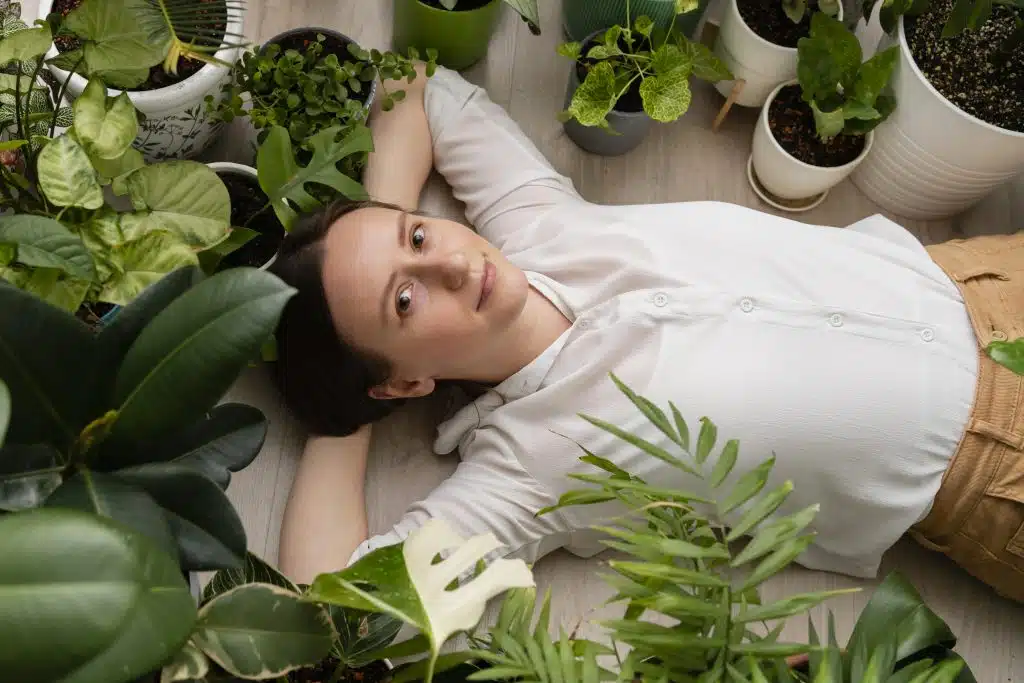How Gardening Improves Physical and Mental Health
Lily Carter August 22, 2025
Gardening has evolved from a leisurely pastime into a powerful tool for improving physical and mental health. As we enter 2025, people are increasingly discovering the therapeutic benefits of gardening, making it one of the most popular ways to enhance well-being. Whether you’re tending to flowers, growing vegetables, or simply nurturing a small herb garden, gardening offers a variety of health benefits. This article explores how gardening contributes to physical fitness, reduces stress, and boosts mental clarity, backed by scientific research and expert insights.

The Physical Benefits of Gardening: A Full-Body Workout
Gardening provides an effective full-body workout that engages various muscle groups while offering cardiovascular benefits. It’s a low-impact activity that incorporates movements like bending, stretching, lifting, and squatting, all of which help improve strength, endurance, and flexibility.
A Calorie-Burning Activity
Gardening burns between 250 to 350 calories per hour, depending on the intensity of the tasks involved. Tasks like digging, weeding, and planting engage the muscles in the arms, legs, and core, providing a solid workout without the need for gym equipment. Unlike traditional exercises, gardening doesn’t feel like a workout, making it easier for people to stick to consistently.
Key Physical Benefits of Gardening:
- Cardiovascular health: Gardening helps lower blood pressure and improve heart health by increasing circulation.
- Strength and flexibility: Activities like lifting bags of soil or bending to plant flowers help build muscle and improve mobility.
- Improved motor skills: Repetitive tasks such as watering plants and pruning enhance fine motor skills and coordination.
A Natural Stress Reliever for the Body
Gardening is not only good for your physical health, but it also acts as a natural stress reliever. Studies show that gardening reduces levels of cortisol, the stress hormone, and can promote relaxation. The repetitive movements involved in gardening, such as digging or weeding, provide a soothing and meditative experience that calms the nervous system.
Gardening also helps release endorphins, the body’s natural feel-good chemicals, contributing to an overall sense of well-being.
The Mental Health Benefits of Gardening: Reducing Stress and Boosting Well-Being
In addition to its physical benefits, gardening is recognized for its positive effects on mental health. The simple act of spending time in nature and connecting with plants can significantly enhance mood, reduce anxiety, and even alleviate symptoms of depression.
Mindfulness and Stress Reduction
Gardening encourages mindfulness by requiring focus on the present moment. Whether you’re planting seeds, watching a flower bloom, or enjoying the scent of fresh herbs, gardening provides an opportunity to escape the chaos of daily life and reconnect with nature. This connection helps calm the mind, reduce stress, and promote mental clarity.
Gardening as a Mindfulness Practice:
- Concentration: Gardening requires focus, whether it’s ensuring plants get the right amount of water or identifying the perfect spot for each plant.
- Engagement with nature: Being outdoors and surrounded by plants encourages a connection to nature, which has been shown to lower anxiety and improve mood.
Mood Enhancement and Depression Relief
Spending time in nature has long been linked to improved mental health, and gardening is a direct way to reap those benefits. A study published in The Journal of Public Health found that gardening significantly boosted mood and well-being, with participants reporting lower levels of depression after spending time gardening.
The act of nurturing plants and watching them grow can foster a sense of accomplishment, pride, and control—important factors in reducing feelings of helplessness often associated with depression.
Cognitive Focus and Mental Clarity
Gardening is not only beneficial for emotional health but also for cognitive function. Many gardeners report a sense of mental clarity after spending time in their gardens. The combination of physical activity and focused attention can help reduce mental fatigue and increase cognitive focus. Gardening offers an opportunity to clear the mind and focus on the process, providing a much-needed break from the constant flow of digital distractions.
Gardening and Social Connection: Building Community
Another key benefit of gardening is the social connections it fosters. Gardening can be a solitary activity, but many people find community and support through shared gardening spaces and groups. Community gardens are an excellent way for people to come together, exchange knowledge, and work towards a common goal of cultivating nature.
The Social Benefits of Community Gardening
Community gardening helps reduce feelings of isolation by creating opportunities for individuals to interact with others who share similar interests. Whether it’s exchanging tips, participating in local garden projects, or attending workshops, the social aspect of gardening is increasingly recognized as an important contributor to mental well-being.
Furthermore, gardening in groups provides emotional support and a sense of belonging, which is vital for mental health, particularly in urban areas where social isolation can be prevalent.
Gardening for Sustainability: The Eco-Friendly Impact
As sustainability becomes a core concern in 2025, gardening is increasingly seen as an eco-friendly practice that promotes environmental health. Growing your own food not only benefits your health but also helps reduce your carbon footprint.
Growing Your Own Food
One of the key benefits of gardening in 2025 is its contribution to a sustainable lifestyle. Growing your own fruits, vegetables, and herbs can significantly reduce your reliance on commercially grown produce, much of which comes with a heavy environmental toll due to transportation and packaging.
Home gardening allows you to have direct control over what goes into your food. You can avoid pesticides and chemicals commonly found in store-bought produce, leading to healthier meals.
Eco-Therapy: Healing for You and the Earth
Eco-therapy, which connects individuals with nature to improve their mental health, is a growing trend. Gardening, as a form of eco-therapy, promotes environmental consciousness while enhancing your emotional and psychological well-being. The act of tending to plants and watching them thrive provides a sense of purpose and connection to something greater than oneself.
How to Start Gardening for Health: Tips for Beginners
If you’re new to gardening, getting started can feel overwhelming. However, starting small and focusing on manageable tasks will help you build a sustainable gardening habit. Here are some simple tips to help you begin your gardening journey:
- Choose the Right Space: Whether it’s a backyard, balcony, or windowsill, you can create a garden in almost any space. If you’re limited on space, consider container gardening.
- Start with Easy Plants: Begin with low-maintenance plants like herbs, succulents, or easy vegetables such as lettuce, spinach, or tomatoes.
- Create a Routine: Set aside a specific time each day or week to tend to your garden. This consistency can boost your sense of accomplishment and contribute to your mental well-being.
- Join a Community: If you prefer socializing, consider joining a local community garden. These spaces offer both physical and emotional benefits, as well as opportunities to meet others who share your passion.
Conclusion
In 2025, gardening has become more than just a way to beautify your home; it’s a therapeutic practice that offers both physical and mental health benefits. From boosting cardiovascular health to reducing stress and enhancing mood, gardening is a simple and accessible tool for improving overall well-being. By engaging in gardening, individuals can reconnect with nature, foster social bonds, and enjoy the numerous physical and emotional benefits that come with nurturing the earth.
Whether you’re an experienced gardener or a beginner, incorporating gardening into your life can provide significant benefits to your physical health and mental wellness. As we move toward a more sustainable and mindful future, gardening offers a practical and enriching way to enhance our lives.
References
- Physical Health Benefits- https://www.deseret.com
- Mental Health Benefits- https://www.summacare.com
- Social and Community Benefits- https://en.wikipedia.org





